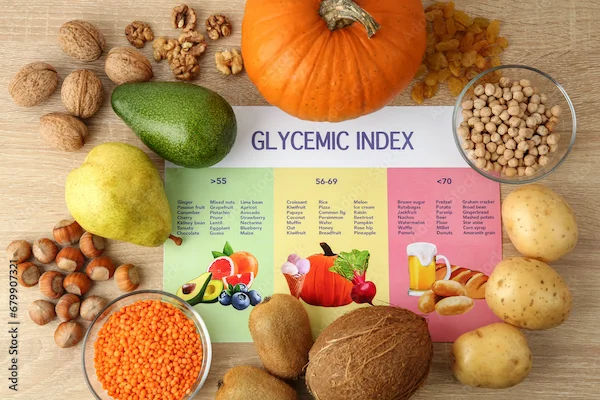Causes of Glomerulonephritis Explained
Glomerulonephritis is a condition that damages the kidney’s filtering units. Learn about its causes—from infections to autoimmune diseases—and how you can manage and prevent complications.


Glomerulonephritis (pronounced glo-mer-u-lo-ne-fry-tis) is a condition that affects the tiny filters in your kidneys, called glomeruli. These filters help remove waste and excess fluids from your blood. When they become inflamed or damaged, your kidneys may not work as they should, leading to various health problems.
If you or a loved one has been diagnosed with glomerulonephritis, you may wonder what caused it. Understanding the causes can help you take better care of your health and prevent complications. Let’s explore the common reasons behind this condition in simple terms.
What Causes Glomerulonephritis?
Glomerulonephritis can develop suddenly (acute) or slowly over time (chronic). The causes vary, but they often relate to infections, immune system problems, or other underlying diseases. Here are the most common causes:
1. Infections
Certain infections can trigger an immune response that mistakenly attacks the kidneys.
Strep Throat or Skin Infections – A common cause in children is a bacterial infection called Streptococcus (strep throat or skin infections). The immune system fights the bacteria but may also harm the kidneys.
Bacterial Endocarditis – An infection of the heart’s inner lining can spread bacteria to the kidneys.
Viral Infections – Hepatitis B, hepatitis C, and HIV can also lead to glomerulonephritis.
2. Autoimmune Diseases
Sometimes, the body’s immune system mistakenly attacks healthy kidney tissue. Conditions linked to this include:
Lupus (SLE) – A disease where the immune system attacks different organs, including the kidneys.
IgA Nephropathy (Berger’s Disease) – A condition where an antibody called IgA builds up in the kidneys, causing inflammation.
Goodpasture’s Syndrome – A rare disease where the immune system attacks the lungs and kidneys.
3. Other Medical Conditions
Certain chronic illnesses can damage the kidneys over time:
Diabetes – High blood sugar levels can harm the glomeruli, leading to diabetic nephropathy.
High Blood Pressure (Hypertension) – Uncontrolled BP can damage kidney blood vessels, reducing their filtering ability.
Vasculitis – Inflammation of blood vessels (like in granulomatosis with polyangiitis) can affect kidney function.
Consult Top Specialists
4. Genetic Factors
Some people inherit conditions that increase their risk:
Alport Syndrome – A genetic disorder that affects kidney filters, leading to progressive damage.
Thin Basement Membrane Disease – A condition where the kidney filters are abnormally thin, sometimes causing blood in urine.
5. Medications or Toxins
Certain drugs or harmful substances can trigger kidney inflammation:
NSAIDs (e.g., ibuprofen, naproxen) – Overuse can harm the kidneys.
Certain Antibiotics or Chemotherapy Drugs – Some medications may have side effects affecting the kidneys.
How Does Glomerulonephritis Affect Your Health?
When glomeruli are damaged, your kidneys struggle to remove waste and excess fluids. This can lead to:
Swelling (Edema) – Especially in the legs, hands, or face due to fluid retention.
High Blood Pressure – Damaged kidneys may struggle to regulate blood pressure.
Blood or Protein in Urine – A sign that filters are leaking.
Fatigue & Weakness – Due to waste buildup in the blood.
Reduced Kidney Function – In severe cases, it may lead to kidney failure.
How Can You Manage Glomerulonephritis?
While some causes (like genetics) can’t be changed, you can take steps to protect your kidneys:
1. Follow Your Doctor’s Advice
Take prescribed medications (like blood pressure or immune-suppressing drugs).
Monitor kidney function with regular tests.
2. Eat a Kidney-Friendly Diet
Reduce Salt – Helps control blood pressure and swelling.
Limit Protein – Too much protein can strain the kidneys.
Avoid Processed Foods – They often contain high sodium and preservatives.
3. Control Underlying Conditions
Manage diabetes and high blood pressure carefully.
Stay hydrated and avoid infections.
4. Avoid Harmful Substances
Limit NSAIDs (painkillers like ibuprofen).
Quit smoking and limit alcohol.
5. Regular Check-ups
Early detection helps prevent kidney damage. If you notice symptoms like swelling, blood in urine, or fatigue, consult a doctor.
When to See a Doctor
If you experience:
Persistent swelling in legs or face
Foamy or bloody urine
High blood pressure
Unexplained fatigue
It’s important to get checked. Apollo 24|7 makes it easy to consult a nephrologist (kidney specialist) or book a kidney function test from home.
Conclusion
Glomerulonephritis can have different causes, but understanding them helps in better management. With proper care, many people live healthy lives despite this condition. If you suspect kidney issues, don’t delay early action can make a big difference.
Consult Top Specialists
Consult Top Specialists
Dr. Gaddam Manoj
General Practitioner
1 Years • MBBS
Hyderabad
Aaradhya clinic, Hyderabad

Dr Suseela
General Physician
5 Years • MBBS
Bengaluru
Apollo Medical Center, Marathahalli, Bengaluru
Dr. Sahana B
General Practitioner
3 Years • MBBS
Koppal
Khushi multi-speciality hospital, Koppal

Dr Summaiya Banu
General Practitioner
8 Years • MBBS
Hyderabad
Apollo 24|7 Clinic, Hyderabad
(175+ Patients)

Dr. Vandana Malik
General Practitioner
8 Years • MBBS, FAM
Noida
Skinlogics Clinic, Noida




